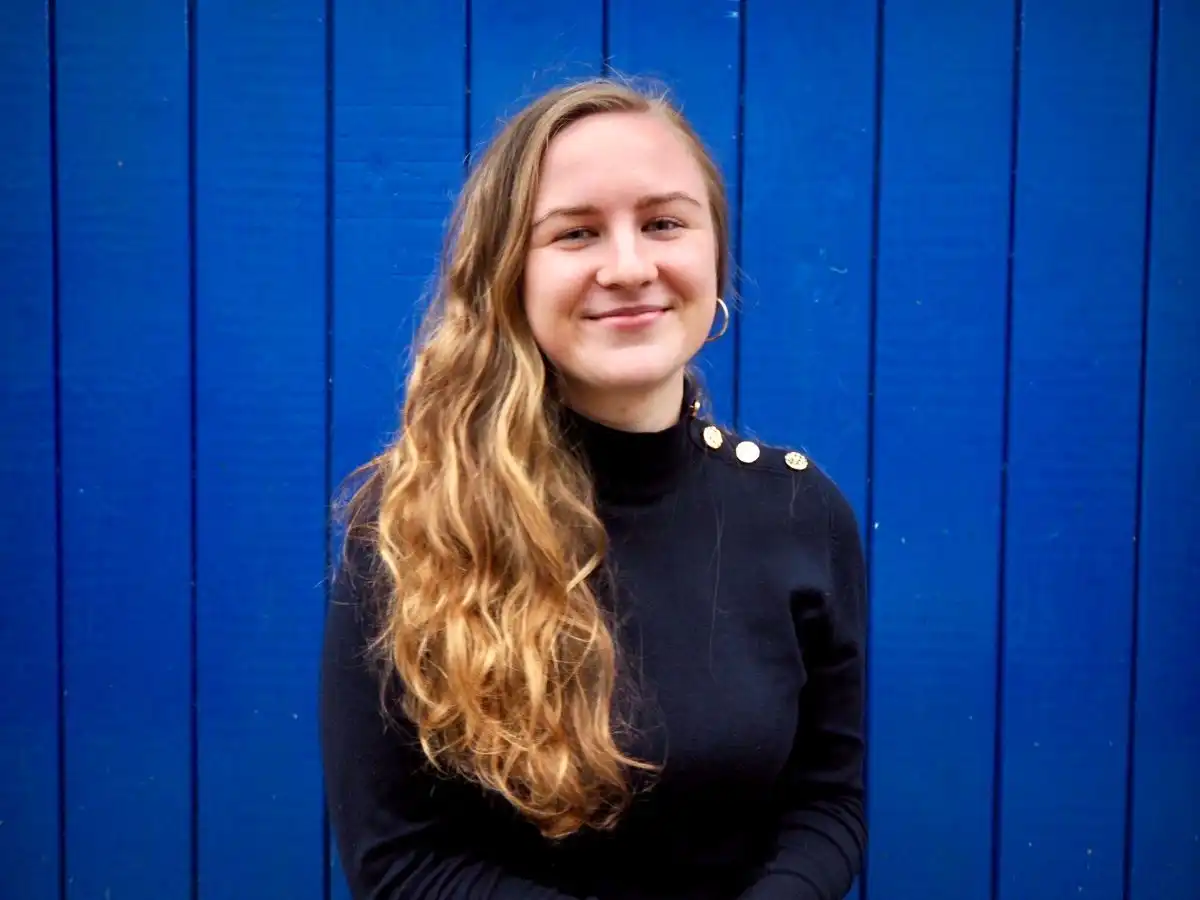Home>Meet the 2025 graduates: Apolónia Drábová
15.09.2025
Meet the 2025 graduates: Apolónia Drábová

Can you describe your academic and professional background?
Before pursuing my Master’s degree in Public Policy at Sciences Po, I completed both my Bachelor's and Master's in (Political) Communication Science at the University of Amsterdam. These studies provided me with a strong foundation in scientific research, effective communication and engaging storytelling. Moreover, I undertook an internship at a progressive and pro-European political party in Slovakia, which offered me a realistic perspective on political work and confirmed my desire to contribute to meaningful social changes.
Yet, after graduating, my curiosity and desire to learn did not stop growing. I felt the need to deepen my understanding of policy-making and better equip myself to help develop solutions that have a real and meaningful impact on people’s lives. Having previously studied at Sciences Po as an Erasmus student, I knew it was the right environment for the next step in my academic and professional journey.
Why did you choose to pursue this specific policy stream “Politics and public policy”?
I chose the Politics and Public Policy stream because I saw it as the ideal complement to my previous studies. While I value my background in communication science, I realized I wanted to be on the other side – not only focusing on communication but actively contributing to the design and implementation of crucial policies that advance sustainable development, social justice and democratic resilience.
All around the world, including in my home country, Slovakia, we are witnessing the rise of populism, far-right extremism, mis- and disinformation, and declining trust in institutions. These complex challenges shape our daily realities, yet the policy responses are often insufficient. I believed this stream would allow me to engage meaningfully with a variety of interconnected topics and prepare me for my future career.
How did your training at the School of Public Affairs contribute to get your degree and the position you hold today?
My time at Sciences Po was very enriching, both professionally and personally. I had the privilege of learning not only from professors who are leading experts in their fields, but also from my classmates with diverse experiences, which made our debates intellectually stimulating.
Moreover, during my final semester, I completed an internship at the International Science Council, where I contributed to bridging the science–policy gap, particularly in the context of the UN Ocean Conference (UNOC-3). At a time when science is increasingly politicized and attacked from many sides, it was quite insightful to work alongside scientists and experts to promote evidence-based policy-making.
Also, one of the most meaningful experiences at Sciences Po was participating in the Sustainable Development Goals (SDG) Initiative. Together with my team, we developed an innovative policy proposal aimed at improving educational access for Roma children in Luník IX, Slovakia. I conducted interviews with key stakeholders and actors in the field, organized fieldwork in Luník IX, and gained valuable insights into the systemic barriers and the local context. This initiative deepened my interest in education policy and social equity, and reinforced my desire to make these issues central to my future work.
What advice would you give to current and future students?
My advice to current and future students would be: engage in discussions and debates with your classmates. There is so much you can learn from all the diverse perspectives and experiences around you. You just need to be genuinely curious and actively listen. And if you are more introverted or hesitant to speak up in class, do this outside the classroom.
I would also say that it is important to narrow down your interests during your studies. Choose two (or three) key issues you are passionate about and let this passion guide your essay topics, course selection and internships. If you are like me, and many different issues resonate with you, it will not be easy, but it will help you tremendously in getting a sense of direction and building expertise.
Moreover, when you enter the workforce, either as an intern or after your studies as a fresh graduate, do not get lost in the system. Continue to be curious, keep questioning and challenging the things around you that do not work. And do not forget (or lose hope) that change is possible.
And lastly, enjoy your time as a university student! Try to take it all in, even during the stressful or more hectic moments. It goes by faster than you think, and once it is over, (almost) all of us end up missing it.
Where do you see yourself heading next or what do you see as your next challenges?
I am drawn to work that is intellectually challenging and has a tangible impact – for instance, where you can see a city transforming into a more inclusive and sustainable environment, visibly improving the lives and well-being of its communities. So, I hope that my next steps will involve work at the local level on issues that are close to my heart – education, community-building and sustainable development.
Find out more
Information Sessions: Masters

Find out more about the Masters programs and the wide choice of specialisations offered by the 8 Schools of Sciences Po during our webinars dedicated to applicants.